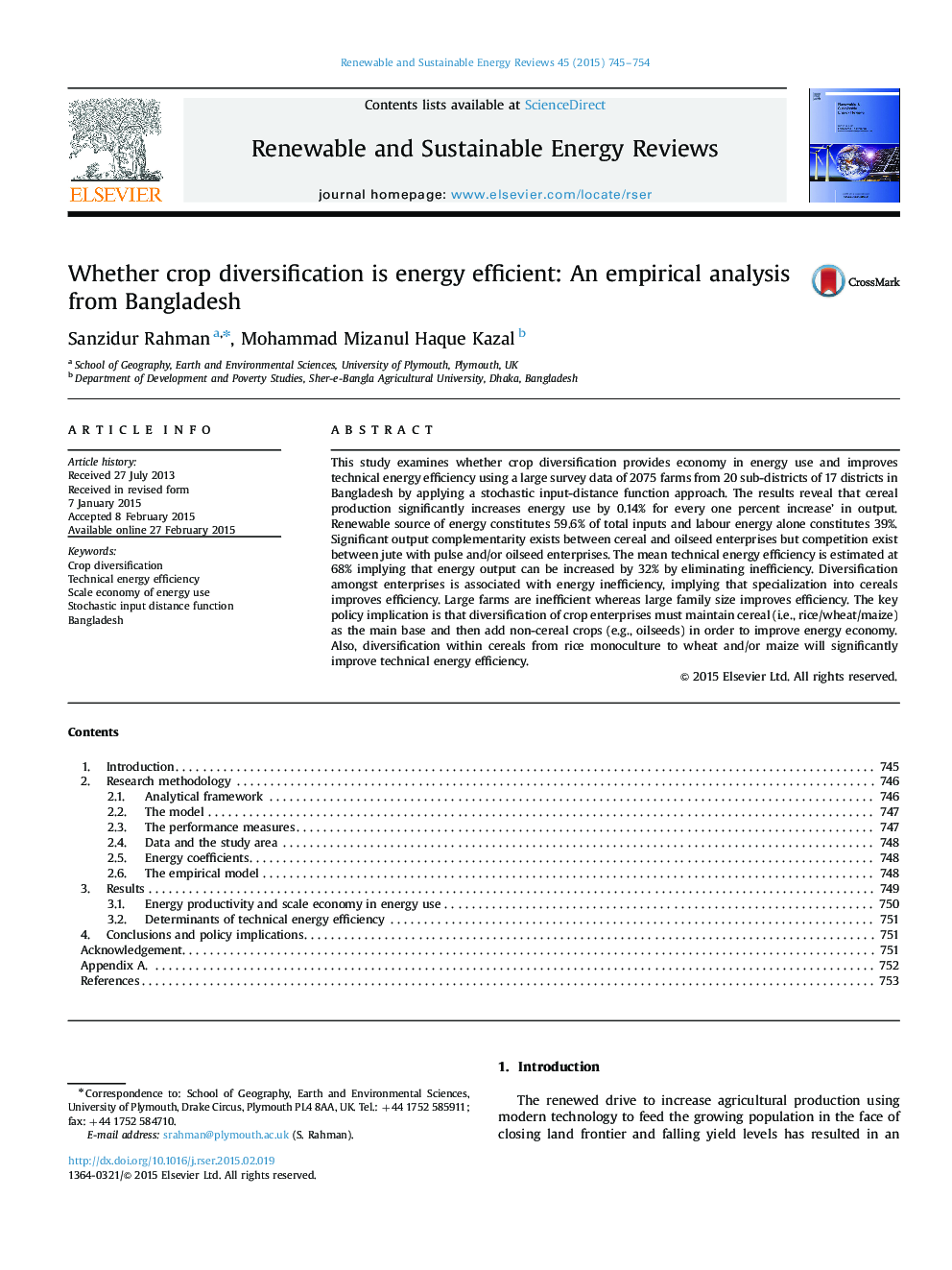| کد مقاله | کد نشریه | سال انتشار | مقاله انگلیسی | نسخه تمام متن |
|---|---|---|---|---|
| 1750081 | 1522340 | 2015 | 10 صفحه PDF | دانلود رایگان |
This study examines whether crop diversification provides economy in energy use and improves technical energy efficiency using a large survey data of 2075 farms from 20 sub-districts of 17 districts in Bangladesh by applying a stochastic input-distance function approach. The results reveal that cereal production significantly increases energy use by 0.14% for every one percent increase’ in output. Renewable source of energy constitutes 59.6% of total inputs and labour energy alone constitutes 39%. Significant output complementarity exists between cereal and oilseed enterprises but competition exist between jute with pulse and/or oilseed enterprises. The mean technical energy efficiency is estimated at 68% implying that energy output can be increased by 32% by eliminating inefficiency. Diversification amongst enterprises is associated with energy inefficiency, implying that specialization into cereals improves efficiency. Large farms are inefficient whereas large family size improves efficiency. The key policy implication is that diversification of crop enterprises must maintain cereal (i.e., rice/wheat/maize) as the main base and then add non-cereal crops (e.g., oilseeds) in order to improve energy economy. Also, diversification within cereals from rice monoculture to wheat and/or maize will significantly improve technical energy efficiency.
Journal: Renewable and Sustainable Energy Reviews - Volume 45, May 2015, Pages 745–754
